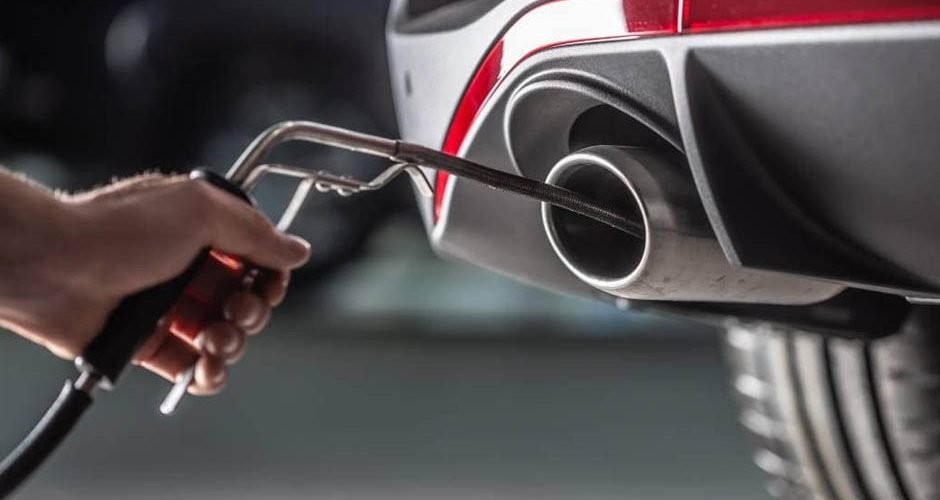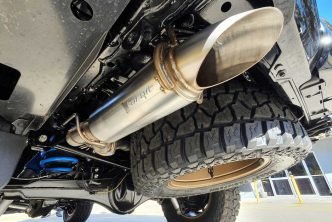A new study by the International Council on Clean Transportation (ICCT) revealed that three-quarters of European diesel cars may have cheat devices installed. The research comes as a direct response to the fallout from the Volkswagen Dieselgate scandal, in which the German automaker was found guilty of deliberately manipulating emissions tests.
The ICCT study analysed real-world driving emissions data collected from more than a thousand official government tests and 700,000 measurements from five EU countries. A significant percentage of Euro 6 diesel cars and older Euro 5 vehicles exhibit “suspicious” test results that indicate excessive emissions. Specifically, 77% of Euro 6 diesel cars and 85% of Euro 5 vehicles fell under this category, with many of these cars seemingly using cheat devices to mask their true pollution levels. The presence of a defeat device was “almost certain” in at least 40% of the tests, as indicated by the discovery of “extreme” emission levels. This finding highlights the seriousness of the issue.
Table of Contents
A Damning Revelation
The findings of the ICCT study represent a damning indictment of the European automotive industry, which has long claimed that Dieselgate was an isolated incident. The data suggests that similar deceit could be widespread among major automakers, raising important questions about the regulatory framework designed to hold manufacturers accountable.
To date, the European Union has been slow to respond to the growing scandal, prompting criticism from environmental campaigners and industry watchdogs. With the new report, however, there is evidence that public and political pressure may finally force change.
The ICCT study also found that some automakers were performing better than others in emissions, with Renault and Nissan ranking poorly compared to their competitors.
Why Cheat?
The use of cheat devices in diesel vehicles has become highly contentious in recent years. In December 2020, the Court of Justice of the European Union ruled that defeat devices are unlawful. The devices allow manufacturers to reduce emissions during lab tests without significantly changing the vehicle’s performance or fuel economy in real-world driving conditions.
By reducing emissions in lab tests, automakers can provide the illusion of clean diesel technology, even though their vehicles still produce harmful pollution levels. This tactic is particularly insidious, as diesel engines are often marketed as more eco-friendly than their petrol counterparts.
The ICCT study found that many cars with cheat devices were emitting far more times the legal limit for nitrogen oxides. This finding is particularly concerning, as nitrogen oxide emissions are linked to respiratory issues and other health problems.
Regulation and Responsibility
The EU has long been criticised for its lack of effective regulation in the automotive sector. Despite the Volkswagen scandal breaking in 2015, little has been done to curb emissions fraud or strengthen industry oversight.
The ICCT study calls on the EU to adopt stricter emissions standards and provide greater resources for enforcement and monitoring. It also calls on governments to take more responsibility for ensuring that their citizens are protected from the harms of pollution.
The issue of responsibility is a key one, as the ICCT study suggests that consumers are paying the price for diesel emissions fraud, and government efforts in holding manufacturers to account for diesel claims are lacking. Vehicles that emit more pollutants often require more maintenance and repairs, leading to increased costs for drivers.
How Do I File My Diesel Claim?
If you own a diesel vehicle and have experienced issues with its emissions, you may be eligible for compensation through a diesel emissions claim. To begin filing your claim, you must first determine your compensation eligibility. You can head over to https://www.emissions.co.uk for a detailed list of eligibility criteria.
Next, you will need to submit documentation to validate your case. This documentation should include proof of ownership or lease of an eligible vehicle and evidence of any repairs, modifications, or trade-in transactions related to the vehicle. Additionally, you must provide documents proving your residency in the United Kingdom.
It is important to note that filing your diesel emissions claim does not guarantee compensation. Your compensation depends on several factors, such as your vehicle’s make, model, year, and condition. Always seek legal advice for a more comprehensive and accurate approach.
Looking Forward
The ICCT study is a stark reminder that the Dieselgate scandal was not an exception to the rule but a symptom of a larger problem within the automotive industry. If Europe is to tackle the issue of air pollution, it must take a more proactive approach to reining in emissions fraud and promoting cleaner, more sustainable technology.
The future of the automotive industry depends on a renewed focus on innovation, transparency, and accountability. While the findings of the ICCT study are undoubtedly worrying, they also offer a glimmer of hope, suggesting that there may be a real appetite for change among consumers, regulators, and industry players alike.





